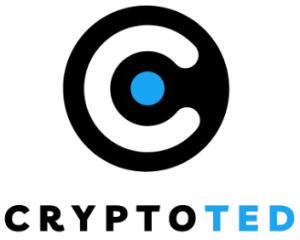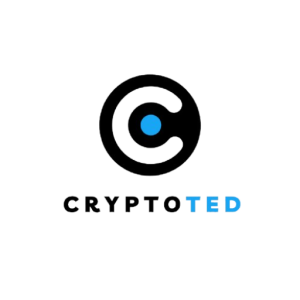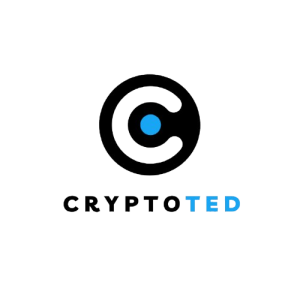
March 12, 2024 update: Since the initial publication of this post, several client teams have made Dencun-compatible releases containing significant performance and stability improvements. While previously announced versions are still considered sufficient for the upgrade, a column has been added to the Client Releases tables highlighting the latest recommended versions for all clients.
- Mainnet blobs are coming .oO: Two years after its ETHDenver inception, dozens of testing calls and devnets later, protodanksharding is finally going live on mainnet!
- Dencun will activate on the Ethereum mainnet at epoch 269568, occurring on March 13, 2024 at 13:55 UTC. Node operators & stakers must upgrade their software to releases listed in this announcement.
- To receive email alerts for future network upgrade announcements, subscribe here.
The Dencun network upgrade has successfully activated on all testnets. It is now set for deployment on the Ethereum mainnet and will activate on the network at epoch 269568, occurring on March 13, 2024 at 13:55 UTC.
The upgrade, which follows last year’s Shapella upgrade, includes several changes, most notably the introduction of ephemeral data blobs with EIP-4844, also known as “protodanksharding”, which will help reduce L2 transaction fees.
If you’d like to follow the upgrade as it happens, please join the community livestream.
Upgrade Specification
The Dencun upgrade combines changes to both Ethereum’s consensus and execution layers. The full list of protocol changes can be found in EIP-7569. For reference, they are:
Deneb
Complete python specifications for changes affecting Ethereum’s consensus layer can be found in the deneb folder of the ethereum/consensus-specs repository.
Cancun
The EIPs linked above contain the full specifications for changes affecting Ethereum’s execution layer.
Additionally, a python specification for these is being implemented in the ethereum/execution-specs repository.
Lastly, Deneb requires changes to the Engine API, used for communication between the consensus and execution layer nodes. These are specified in the cancun.md file of the ethereum/execution-apis repository.
Client Releases
The following client releases support Dencun on the Ethereum mainnet. The Minimum Version column indicates the lowest Dencun-compatible release for a client while the Recommended Version column highlights the latest recommended version for it. Recommended Version releases typically contain performance and stability improvements. If upgrading from a Minimum to Recommended version, make sure to read release notes. Releases with significant breaking changes have not been listed as Recommended.
When choosing which client to run, validators should be especially mindful of the risks of running a majority client on either the execution layer (EL) or consensus layer (CL). An explainer of these risks and their consequences can be found here. An estimate of current EL and CL client distribution and guides for switching from one client to another can be found here.
Consensus Layer Mainnet Releases
Note: when running a validator, both the Consensus Layer Beacon Node and Validator Client must be updated.
Execution Layer Mainnet Releases
Notes:
- While Reth supports Dencun, the client is undergoing a full audit and may not be suitable for all production use cases. See the Reth README for more context.
FAQ
As an Ethereum user or Ether holder, is there anything I need to do?
In short, no. You can join us on the livestream to watch it all happen live!
If you use an exchange, digital wallet or hardware wallet you do not need to do anything unless you are informed to take additional steps by your exchange or wallet provider.
If you run your own Ethereum node, see the next question.
As a non-staking node operator, what do I need to do?
To be compatible with the mainnet Dencun upgrade, update your node’s execution and consensus layer clients to the versions listed in the table above.
As a staker, what do I need to do?
To be compatible with the mainnet Dencun upgrade, update your node’s execution and consensus layer clients to the versions listed in the table above. Make sure both your beacon node and validator client are updated, as well as any external dependencies, such as external block building software.
Additionally, stakers who want to run through the upgrade process more times before mainnet are encouraged to use ephemery.dev, which now supports Dencun.
What happens if I am a staker or node operator and I do not participate in the upgrade?
If you are using an Ethereum client that is not updated to the latest version (listed above), your client will sync to the pre-fork blockchain once the upgrade occurs.
You will be stuck on an incompatible chain following the old rules and will be unable to send Ether or operate on the post-Dencun Ethereum network.
As an application or tooling developer, what should I do?
Review the EIPs included in Dencun to determine if and how they affect your project — there are many new exciting features being introduced across both the execution and consensus layers! The only EIPs with backwards compatibility implications are EIP-6780, EIP-7044 and EIP-7514.
Why “Dencun”?
Upgrades to the consensus layer use star names, and those to the execution layer follow Devcon city names. “Dencun” is the combination of Deneb, a first-magnitude star in the Cygnus constellation, and Cancun, the location for Devcon 3.
Thank you to everyone who helped bring the blobs into existence, (nearly) rid us of SELFDESTRUCT and generally deliver one more major overhaul to the Ethereum network .oO!
Original cover image by Darren Lawrence, with modifications by Tomo Saito.










